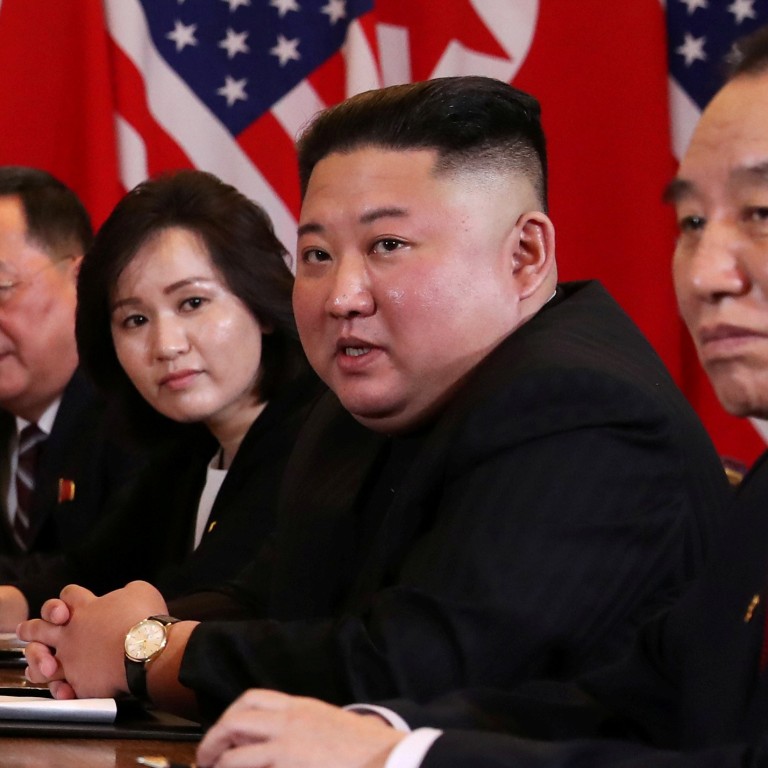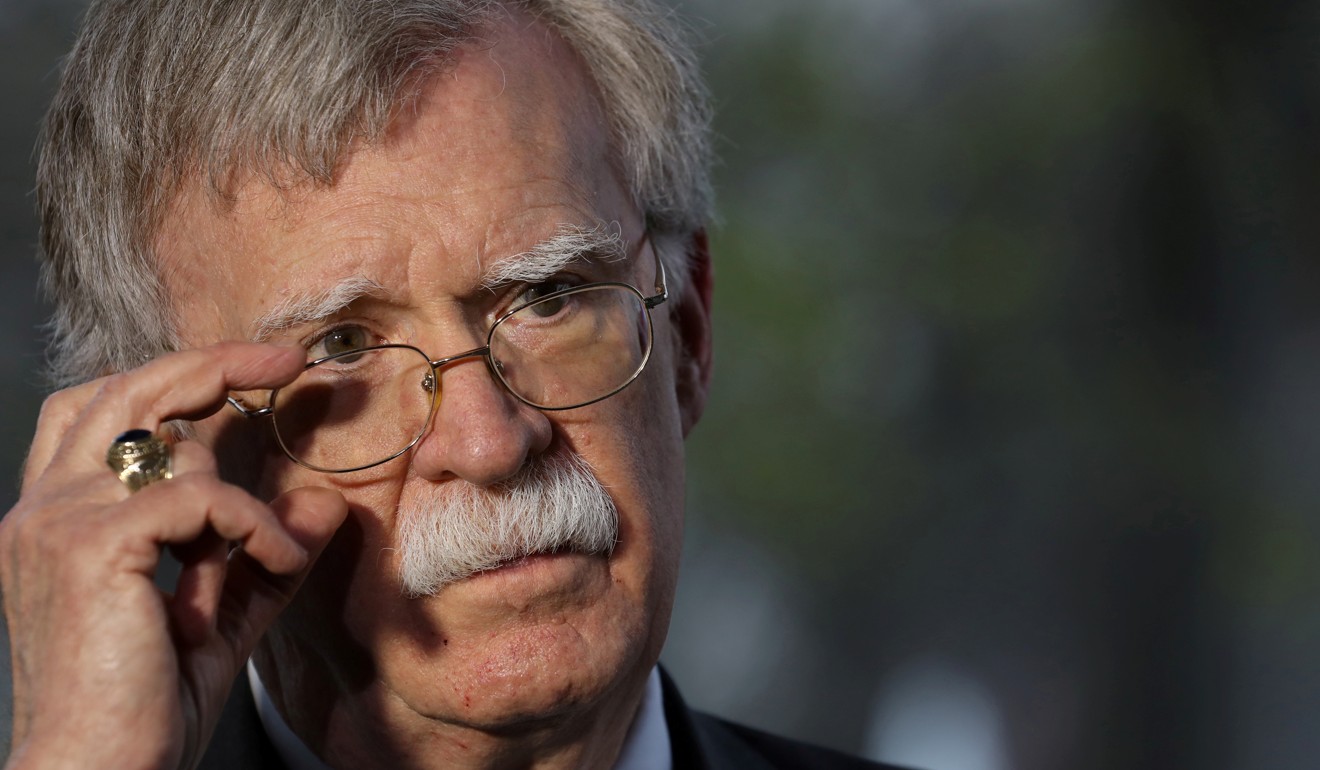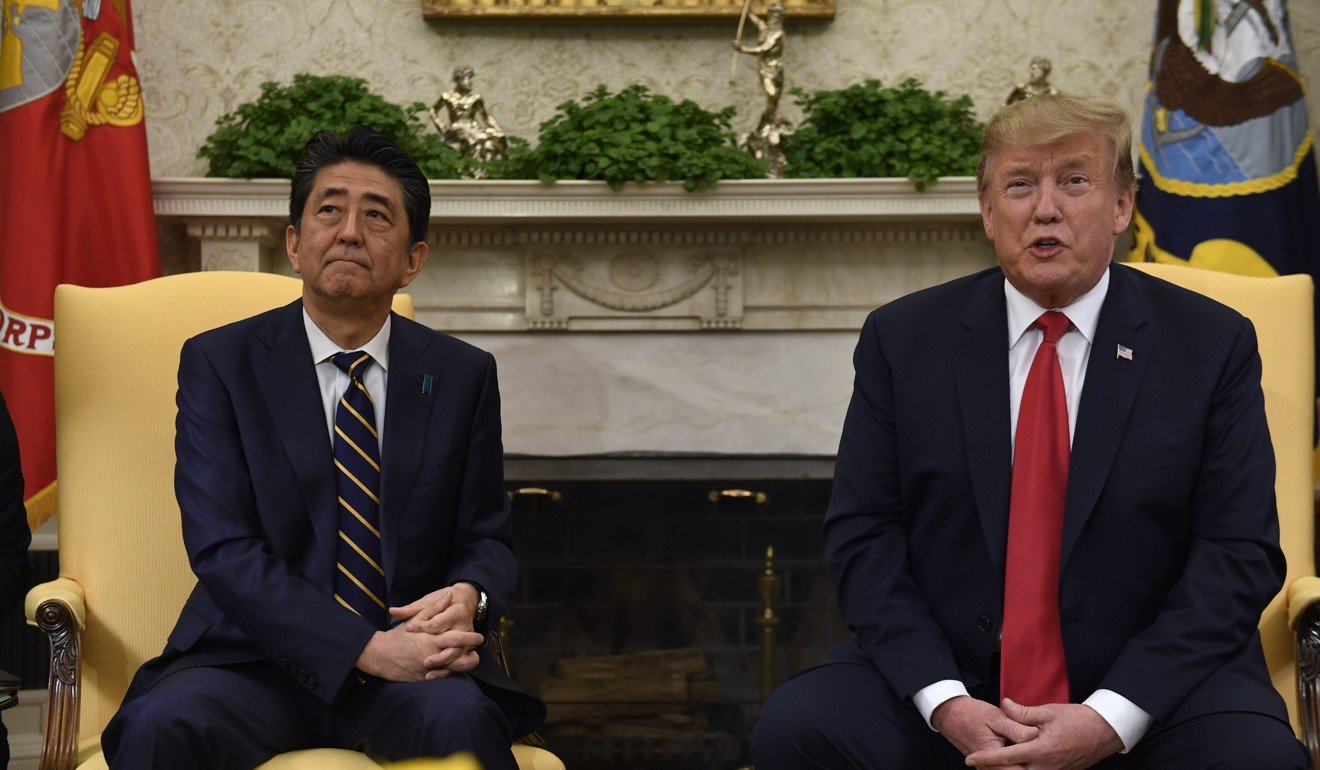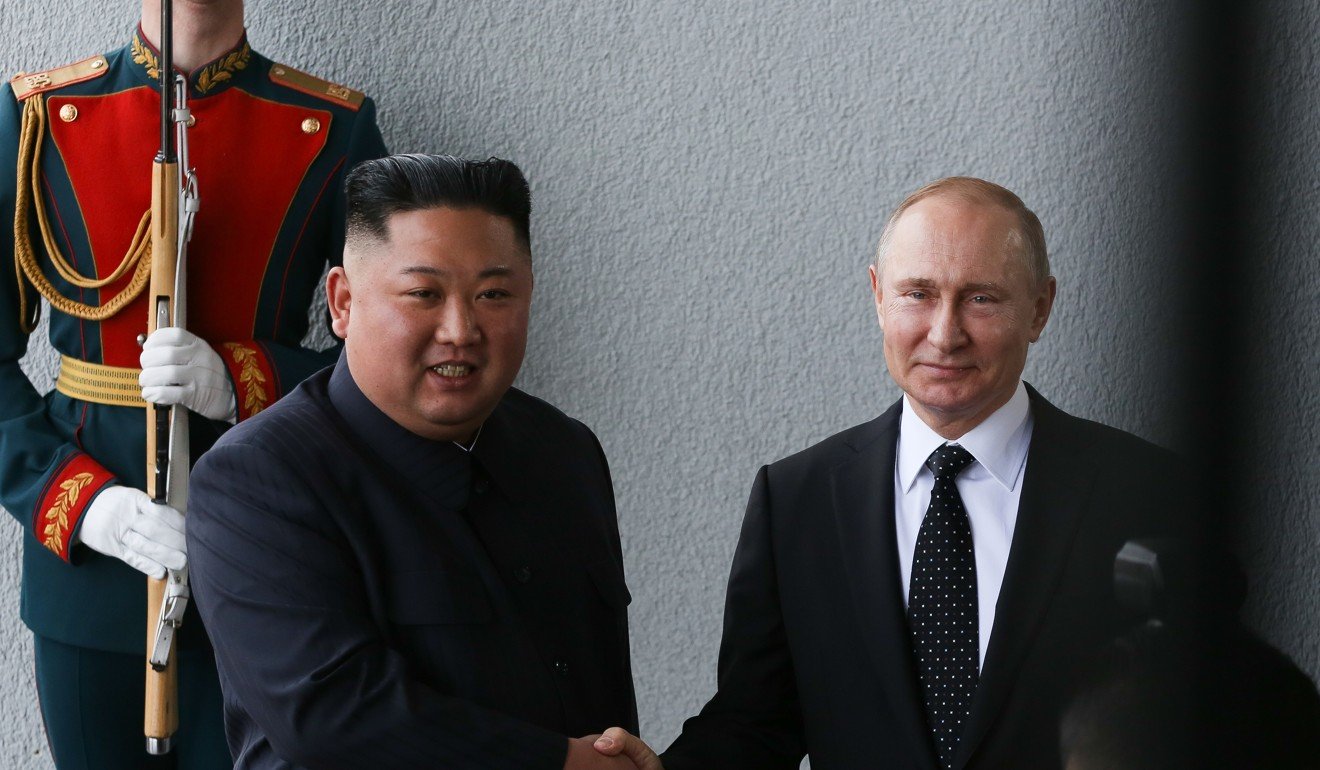
Donald Trump wants one-on-one, not multiparty talks with Kim Jong-un, national security adviser John Bolton says
- Bolton says while the US is not trying to exclude other nations from nuclear talks with Pyongyang, solo talks are preferable
The US has little interest in joining other countries in a multi-nation effort to get North Korea to give up its nuclear weapons, President Donald Trump’s national security adviser said Sunday.
The United States is not trying to exclude other nations from nuclear talks with Pyongyang, John Bolton told Fox News Sunday, but “I think it’s not what our preference is”.

“I think Kim Jong-un, at least up until now, has wanted the one-on-one contact with the United States, which is what he has gotten,” Bolton said, adding that Trump is open to possibility of a third summit with Kim.
Following their talks in Russia on Thursday, President Vladimir Putin suggested the revival of a multilateral approach to the denuclearisation negotiations, which have failed in the past.
Putin said Kim is willing to give up nuclear weapons, but only if he gets ironclad security guarantees supported by a multinational agreement.
The US, North Korea, China, South Korea, Russia and Japan began so-called six-party negotiations in August 2003.
North Korea accepted a deal in September 2005 to end its nuclear weapons programme in exchange for security, economic and energy benefits.
But disagreements between Washington and Pyongyang over financial sanctions imposed on the North temporarily derailed the six-nation talks before North Korea conducted its first nuclear test in October 2006.

The disarmament talks resumed a few weeks later and the six governments reached a deal in February 2007 where North Korea would receive an aid package worth about US$400 million in return for disabling its nuclear facilities and allowing international inspectors to verify the process.
A final attempt to complete an agreement to fully dismantle North Korea’s nuclear programme fell through in December 2008 when the North refused to accept US-proposed verification methods.
Trump’s two high-profile meetings with Kim – first in Singapore and then in late February in Hanoi – have yielded no denuclearisation road map.
In Russia, Kim strongly criticised Washington for taking a “unilateral attitude in bad faith” in Hanoi that he said caused the diplomatic standstill, North Korea’s state-run Korean Central News Agency said Friday.
Bolton said Trump is still looking at the possibility of a third summit with Kim.

“He feels pretty strongly about it,” Bolton said. “He’s said repeatedly he thinks he has a good relationship with Kim Jong-un and the six-party approach failed in the past.”
Bolton also said Trump also does not favour Kim’s desire for a step-by-step approach to denuclearisation where North Korea would get some sanctions relief in exchange for taking steps toward denuclearisation.
“I think if you look at the past policies, the answer to that is no,” Bolton said. “The past policies that have tried a step-by-step approach have all failed.
“Kim or his father have gotten economic relief and then somehow have never gotten around to that commitment to denuclearise.”

